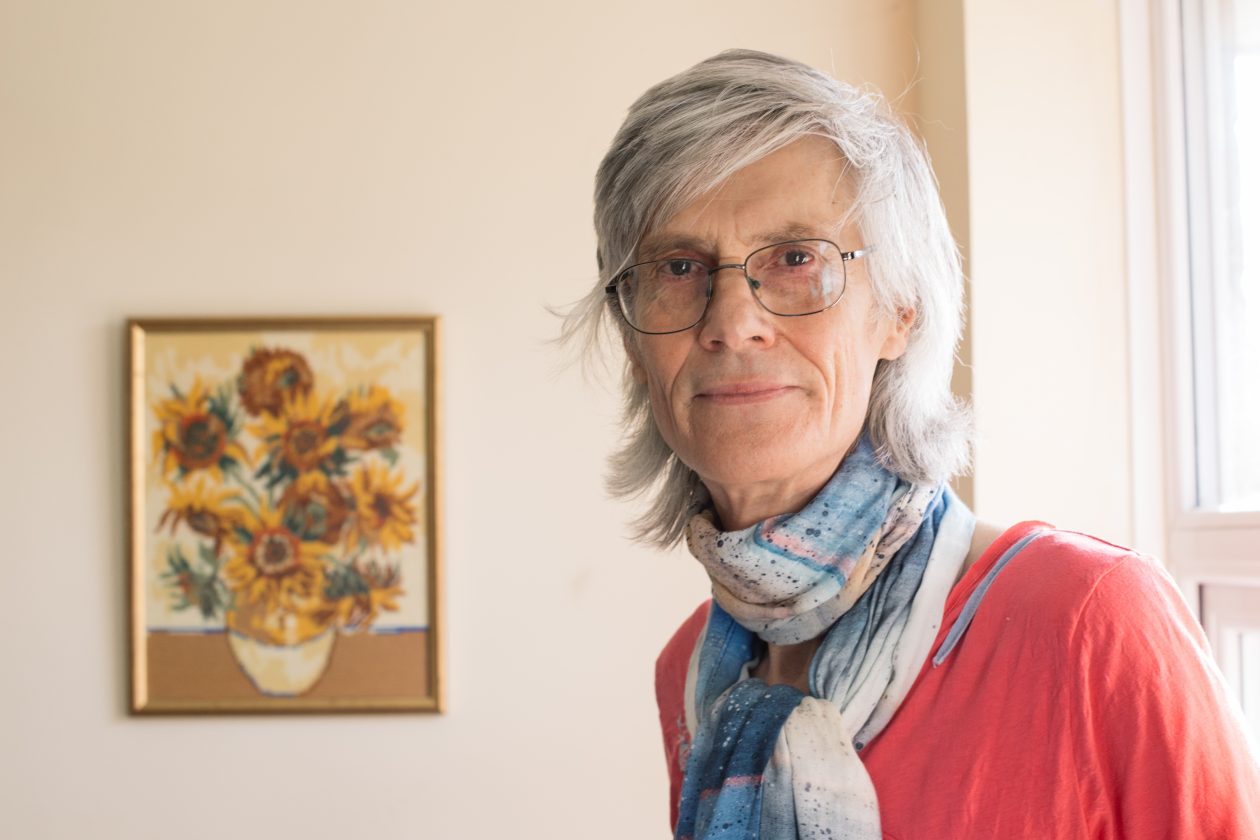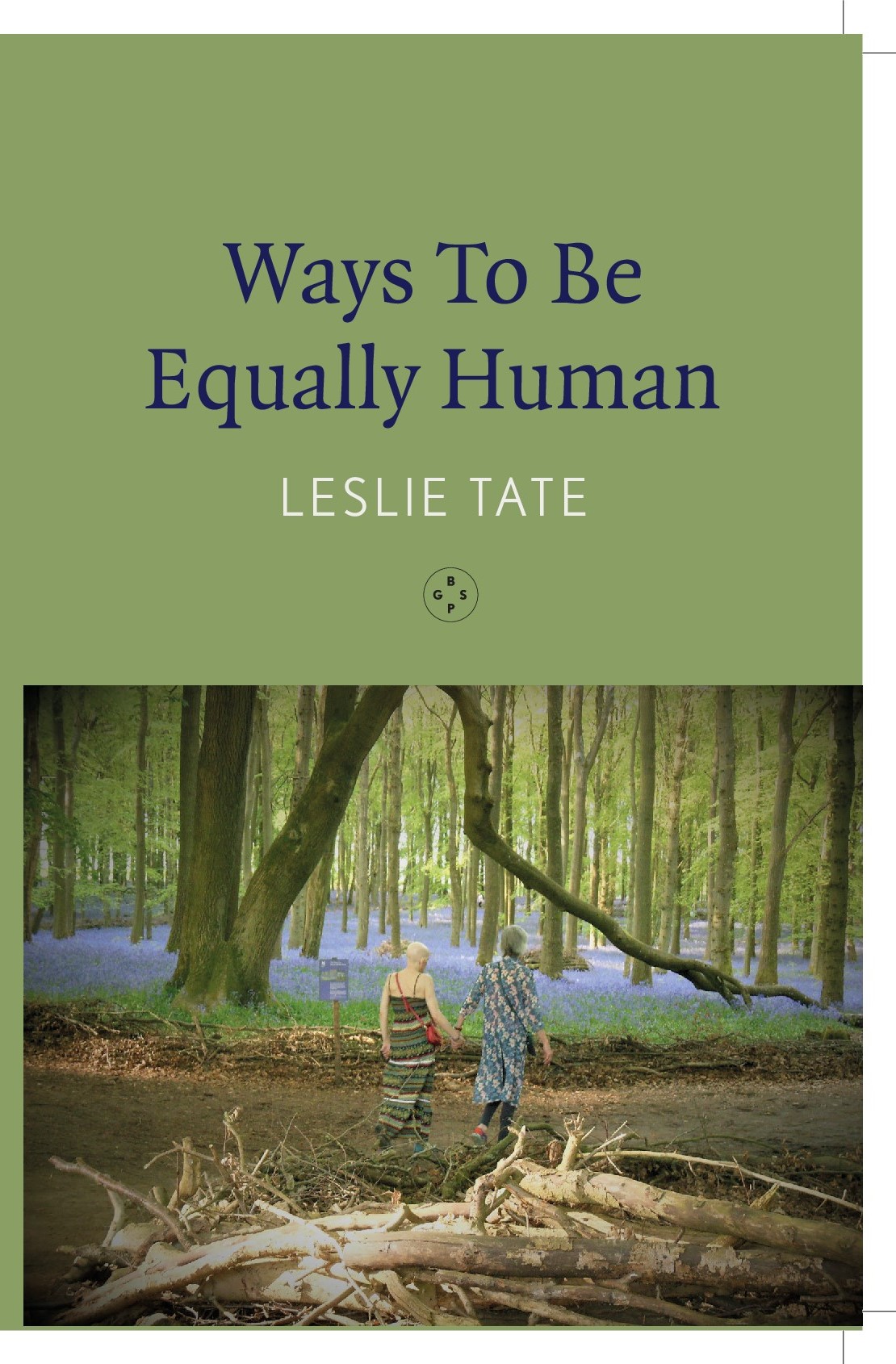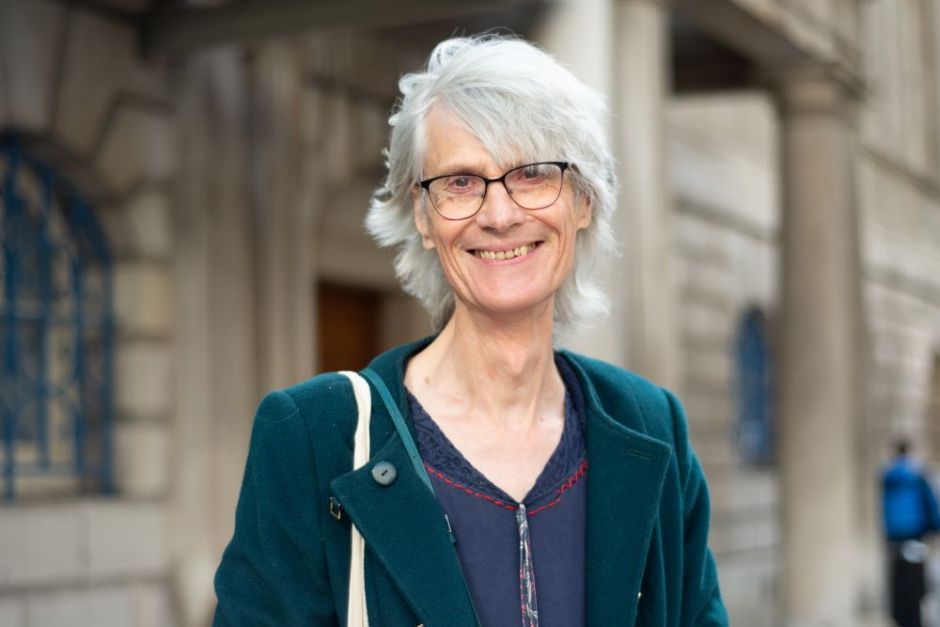
Part 2 MARK STATMAN: MEXICO AND THE POETRY OF GRIEF AND CELEBRATION
Part 2 of my interview with Mark Statman looks closely at Mark’s Latin American poetic influences, his life in Mexico and ends with an extract


Leslie Tate
I’m a slow author. It took three years to write my latest book Ways To Be Equally Human. That’s an average of 40 words per day. So, if you were reading my book you’d have reached my daily word limit HERE.
Some days, of course, I write more, some less. But being an author is a job where you have to show up 24/7 and find a way of doing it. It’s about sitting down and filling that blank screen with pencilled-in sketches, then redrawing and recolouring them again and again. And that’s a lonely business. There are no office chats or team meetings while you’re doing it. No boss, but no support. So you have to maintain direction when it doesn’t flow, stay critical but motivated, while suspecting that anything produced quickly is substandard. You also have to get used to disappointment – deleting several hours’ work when you reread it next day, searching the Thesaurus for words that just won’t come, and realising belatedly that you have to start the whole thing again.
And that’s 174 words, written in 6 hours. Still slow, of course.
There are other points of view. In Ways To Be Equally Human I start from a more upbeat perspective:
For me, writing is an adventure. So I type something on screen, look at it, then change or delete by feel. The aim is for something immediate, but also tested repeatedly, then chopped and changed in order to achieve closure. It’s not about ordering material, but reflecting experience as it is. At the same time, I’m listening for the hard-to-reach phrase that bends the rules – though only so far. Words have their own way of putting things; something the writer learns to work with, moving between the original phrase and the standard ‘filler’. It’s a shifty business: stepping back, balancing, testing the ground, then taking my chances.
But that’s slow, too. It’s analytic, discursive and detailed – the opposite of plot-driven – and just the sort of writing the Big Five don’t publish. They go for the work of literary ‘knowns’ or noteables with agents behind them. For them, authors are a brand, TV/film rights are the target, and the rule is: repeat the formula.
Compare that with the indie author published by an alternative press who aims to explore hidden insights:
In the process of writing and promoting our work we may find ourselves in a room on our own or bigging ourselves up in a bargain basement. Some authors learn the ‘rules’, others go it alone, many give up. If the main myth of our times is the rise and fall of the wunderkind, then we’re all individualists on mission impossible. For me, to record that journey may be risky and the mindset complex but what counts is the person we become – and the qualities it brings to a book.
So writing is a Faustian bargain in reverse. Instead of success at any price it aims to rediscover our best selves. Because with slow writing there is no deadline, payback or hype. It digresses, it takes risks, and is unpredictable.
For me, that means my waking hours are often occupied by what Saul Bellow calls the “primitive prompter or commentator within.” It’s an obsessive search, juggling words and phrases, searching for the golden statement. Something outside time that also points to what’s urgent, happening now.
So yes, Ways To Be Equally Human is not only slow, but driven as well. It’s about emergencies, moments of truth, and our real and present dangers. How we live now under the shadow of climate and personal breakdown. To illustrate this, here’s my last extract (it’s part of a short story):
When Angela entered the café a voice in her head said standing room only. But as she lined up to order, she realised that was wrong. This wasn’t like happy hour or a packed train. In fact, although the room was buzzing, it was quiet as well. Typical, she thought, of a politeness-first provincial town with nothing much to shout about. Just like the song, Heaven is a place where nothing ever happens.
In any case everyone’s number was up.
“Would you like to order?” asked the red-haired woman behind the counter. She was smiling.
Angela frowned. What on earth did she mean? Order what? Certainly, there were things she’d like to have but they weren’t on the menu. “Oh, anything – flat white with oat milk I’ll do.”

“Drink in or take away?”
“In.”
“We’ll bring it to you.” The smile had faded slightly to half-moon, third quarter. “Would you like anything else?”
Angela shook her head.
When the woman confirmed, Angela pulled out her card. As it bleeped against the glass, something passed through her. There were things she couldn’t say.
As she checked the tables, a group stood up. It happened in unison, as if they’d rehearsed it. Sitting down, Angela imitated the barista’s smile. This was her disguise. She was the short, freckle-faced woman who wasn’t there. Ms Average. A stand-in in a film, or a face at a window. Of course, living here, she saw what went on – the march to the station, daytime school runs, shopping, phoning, commuting in the dark – it was all so reassuring and neatly tied up. A trap to catch flies.
A waiter came up. “Flat white with oat milk?”
Nodding, Angela pointed to the table. Better to say nothing.
But as she sipped her coffee, the thoughts took over. Entitlement. Cynicism. Everything sucks. The song she heard was Money, money, money. Because people in Deepling Gate did too much, spent too much and wanted the Moon. In fact, she wondered why she’d come here at all. What was she doing in a MOR town of well-off people chasing their tails?
Suddenly, hearing a voice, she got to her feet. It was harshly insistent, telling her to listen. Right up close but far away as well. And distorted. But of course, she knew who was speaking. Her father, pulling her up. Only this was her turn. “No!” she called, as she stepped on a chair and onto the table. It felt like she was preparing to jump.
“Coffee?” she shouted. “Coffee-coffee-coffee!” She was sounding the alarm. “What’s it about a stupid cup that you spend so much time on it? And money of course. Money-money-money!”
The room hushed as if a gunman had entered. All eyes were on her.
“What’s the use of anything at all? Coffee, coffee, coffee. Money, money, money – whoohoo! That’s all you ever think of.”
By now two staff had reached the table. They were red-faced and short of breath.
“Listen everyone. There’s a climate emergency. and you’re all zonked out. Yes, it’s the business now. Code red. A death spiral. And what are you lot doing? Sitting drinking and talking like nothing’s happening.”
One of the staff members waved her down. But she knew they couldn’t touch her. This was a crime scene, and she was the cat in a tree.
“Oh hoho! Chop, chop. Are you hearing me now? The planet’s burning – dying – we’re just about dead, kaput, and you lot are in your cups.”
Angela squeezed her hands together. They were her batteries, charging. Like vessels, they contained her grief. When the moment came, they’d lose all feeling.
Her voice dropped low. “But I can tell. You’re not even with me. Not in your hearts. Not so you feel it. It’s all out there, a sham, just nice coffee lip service and on to the next dream.”
She shivered as a hand tugged at her jeans. “And don’t touch me, you lot, don’t damned touch me!” Swearing, she kicked over her cup.
The coffee spread in dark pools. It was nut-brown and smeary like molasses.
“See, oil!” she shouted, squatting down and coating her hands. “Oily-oil. That’s what’s doing it.” She laughed, finger-smearing her face. The streaks were her warpaint.
“I’m done,” she said, backstepping onto the chair. “You lot are done,” she added, descending to the floor. Her movements had slowed and her voice had dropped to a whisper. “And don’t say I didn’t tell you.”
And that’s a total of 1355 words or, without extracts, 413 words written in 6 days at an average of 69 words per day.
Fast writing!
Ways to be Equally Human tells the inside story of coming out as a non-binary person, from being ‘othered’ in gendered toilets to stepping up on stage & radio and taking action with Extinction Rebellion. Full of lyrical writing, humour and quirky insights, this is a book for lovers of language, nonconformists and passionate thinkers. You can buy a signed copy here.
Next week you can read about the inside story of radio presenting & writing Ways To Be Equally Human.

Part 2 of my interview with Mark Statman looks closely at Mark’s Latin American poetic influences, his life in Mexico and ends with an extract

I interviewed international poet and translator Mark Statman about Volverse/Volver, his 14th published collection. Mark, who has won national arts awards, is Emeritus Professor of Literary

I interviewed Lisa Dart, finalist in the Grolier, Aesthetica and Troubadour Poetry Prizes and author of The Linguistics of Light (poems, Salt, 2008), Fathom (prose

I interviewed writer Julia Lee Barclay-Morton about her experience of autism. Julia began as an experimental dramatist in New York, moving to the UK to

I interviewed Gillean McDougall from Glasgow, who edited the collaborative projects Honest Error (on Charles Rennie Mackintosh and his wife Margaret Macdonald) and Writing the
| Cookie | Duration | Description |
|---|---|---|
| cookielawinfo-checkbox-analytics | 11 months | This cookie is set by GDPR Cookie Consent plugin. The cookie is used to store the user consent for the cookies in the category "Analytics". |
| cookielawinfo-checkbox-functional | 11 months | The cookie is set by GDPR cookie consent to record the user consent for the cookies in the category "Functional". |
| cookielawinfo-checkbox-necessary | 11 months | This cookie is set by GDPR Cookie Consent plugin. The cookies is used to store the user consent for the cookies in the category "Necessary". |
| cookielawinfo-checkbox-others | 11 months | This cookie is set by GDPR Cookie Consent plugin. The cookie is used to store the user consent for the cookies in the category "Other. |
| cookielawinfo-checkbox-performance | 11 months | This cookie is set by GDPR Cookie Consent plugin. The cookie is used to store the user consent for the cookies in the category "Performance". |
| viewed_cookie_policy | 11 months | The cookie is set by the GDPR Cookie Consent plugin and is used to store whether or not user has consented to the use of cookies. It does not store any personal data. |
5 responses
You’re really doing amazing job,l do have another story l wanted to share with you too
It is a story worth telling, no matter how long it takes. Thanks, Leslie for sharing your process and congratulations on your writing and all your work.
Thank you so much Olga, that’s very kind of you!
Intriguing; the name tells a lot! 🥰💖
🙂 🙂 🙂